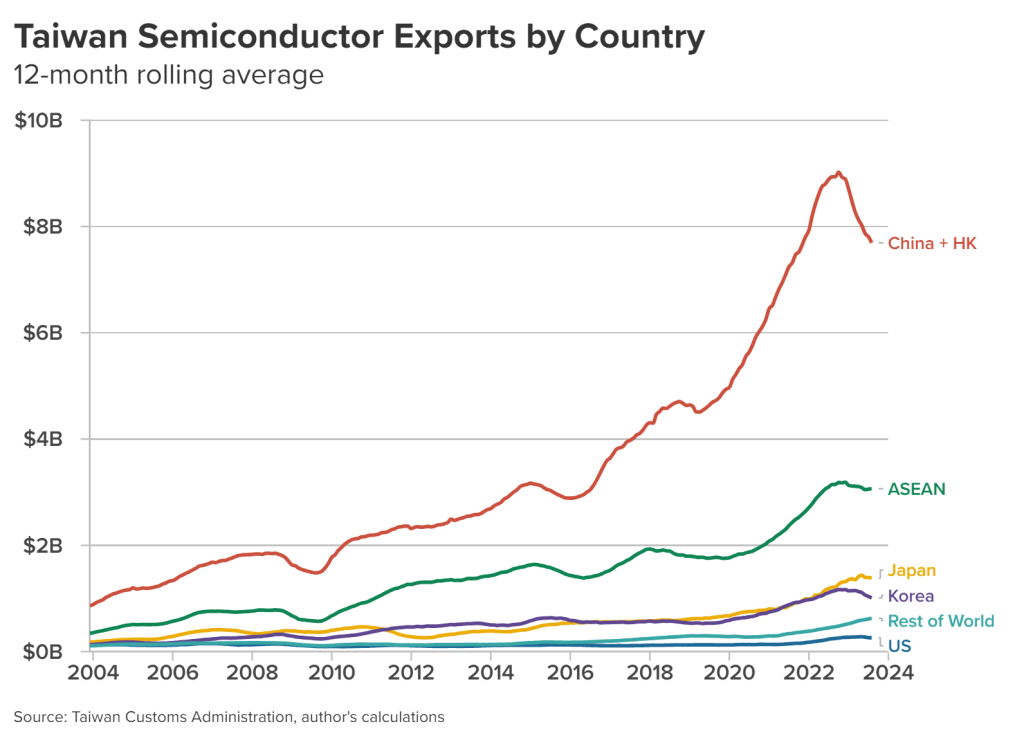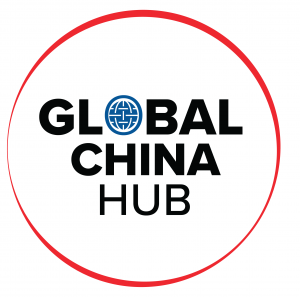Global China Newsletter: Staying on track? Girding for a challenging year in US-China relations
Subscribe to the Global China Hub
In the aftermath of the Biden-Xi meeting last month, China watchers are debating how to characterize this moment in bilateral relations after a roller coaster 2023 – a temporary relaxation in tensions? A meaningful recalibration toward “managed competition”? A full reset?
The answer remains to be seen (I’m betting on #1), but meanwhile less attention has been paid to how our oft-referenced allies and partners are viewing the US-China roller coaster.
I’m just back from India, where I engaged a wide variety of China experts and officials on Delhi’s approach to Beijing. I heard much about India’s bid to contest China’s claimed leadership of the Global South and China’s hardline position on the countries’ border dispute and drive to transform global governance.
But I also heard a concern not typically voiced among Washington’s other friends: that the United States might return to a more conciliatory approach to Beijing even as India sheds inhibitions against engaging in “fierce competition” with China – now almost universally viewed as India’s top strategic threat.
Unlike in Europe, where allies worry aggressive U.S. policies will outpace their more measured responses to the “systemic challenge” posed by China – and many were reassured by the San Francisco meeting – some in India fret that Washington may be tempering competition with Beijing, reviving fears of a “G2” that leaves Delhi out in the cold.
Bottom line – “aligning” with allies and partners is a very complex dance. The natural undulations in Washington’s “managed competition” approach to China – variously announcing tough trade measures or offering Xi the red-carpet treatment that is a requirement of such high-level diplomacy – already necessitates consistent efforts to allay confusion in European and Asian capitals. Add in the fact that our partners differ on how strenuously to compete with China across an array of issues and you get a difficult diplomatic landscape that US administrations will need to navigate for years to come.
And, as our editor-in-chief Tiff Roberts outlines in this edition of Global China, there is no shortage of contentious issues on which the US and its allies need to better align on China, from Taiwan, to internet governance, to economic coercion.
Take it away, Tiff!
-Dave Shullman, Senior Director, Global China Hub
China Spotlight
Taiwan’s election: the high stakes for both China and Taiwan
Hsiao Bi-khim struck a somber note when I interviewed her in Taipei in April 2000 just after the historic first win by the Democratic Progressive Party (DPP). “We did not open the champagne bottles or cut the cake the night of the victory,” she said, then an advisor to new president Chen Shui-bian. “Most of us are having difficulty even smiling today.”
When Taiwan goes to the polls for another presidential election on January 13, 2024 Hsiao will be running as vice president with presidential candidate William Lai. If the DDP wins—and the odds aren’t clear yet—the celebrations may again be muted. That’s because the same existential question faces Taiwan today as it did then: how to maintain its independent status from China while avoiding military conflict.
As Lev Nachman and Wen-Ti Sung, nonresident fellows at the Atlantic Council’s Global China Hub, write: “What makes Taiwan different… is that the fundamental political question is not about social issues, redistribution, or traditional left-right issues. Instead, voters care most about Taiwan’s future, its relationship to China, and which candidate is going to keep Taiwan safe” — the other two presidential candidates are Hou Yu-ih of the Kuomintang (KMT) and Ko Wen-je of the Taiwan People’s Party (TPP). (Check out “Taiwan: A Contested Democracy Under Threat,” a new book by Lev Nachman and Jonathan Sullivan.)
When China’s economic coercion backfires
But China too has much to lose in a war. While Taiwan’s economic reliance on China is widely known, fewer know how much the reverse is true. “An uneasy economic equilibrium [has] constrained Beijing’s worst impulses,” write the Geoeconomics Center’s Jeremy Mark and Niels Graham in a new report “Relying on old enemies: The challenge of Taiwan’s economic ties to China.”
One tends to hear about other countries’ over-reliance on the Chinese economy. But in this case, the authors also explored Beijing’s deep economic vulnerabilities and profound dependencies on Taiwan. “Cross-strait relations are anchored in global supply chains built around Taiwan-made semiconductors and Taiwanese electronics manufacturers’ investments on the mainland.”

As part of its strategy to shift the Indo-Pacific region in its favor, Beijing is more than willing to threaten Taiwan and a range of countries in the region with coercive economic measures. How significant are these threats to Taiwan and the broader interests of the United States and its allies and partners? Check out this December 20 discussion on how to counter Beijing’s economic coercion, hosted by the Indo-Pacific Security Initiative and Global China Hub.
China promotes its own censored and surveilled internet globally
Meanwhile, China is trying to strengthen its position around the world by promoting the concept of cyber sovereignty and its own censored and surveilled version of the internet. “China contends that it is a state’s right to protect its political system, determine what content is appropriate within its borders, create its own standards for cybersecurity, and govern access to the infrastructure of the internet,” writes the Hub’s Dakota Cary in a new report “Community Watch: China’s Vision for the Future of the Internet,” launched on December 4.
China also wants to sell its internet surveillance technology to the world. That isn’t just about turning a profit from a fast-growing market. China has an interest in promoting the resilience of other authoritarian states, many of which are its allies. “By providing political security to a state through censorship, surveillance, and hacking of dissidents, China improves its chances of maintaining access to strategic plots of land for military bases or critical manufacturing inputs. A government that perceives itself to be dependent on China for political security is in no position to oppose it,” writes Cary.
We are already seeing the effects of China’s drive to advance its authoritarian cyber capabilities globally. Countries across the Global South are lining up to acquire the same surveillance technology used within China to suppress minority groups, namely Uyghurs and other Muslim minorities. Companies such Hikvision, Huawei, and Alibaba provide facial recognition technology, advanced analytic tools, intelligent video surveillance systems, and telecommunications infrastructure to countries worldwide. “To stem the proliferation of Chinese surveillance tools, US policy must understand demand and accordingly help address local priorities,” says a May 2023 report by the Council’s DFR Lab.
Just what role is China trying to play in the Israel-Palestine conflict?
That’s the question discussed by Jonathan Fulton, nonresident senior fellow at the Middle East Programs, and Reichman University Asia Policy Program head Gedaliah Afterman, in the podcast, “China and the Israel-Hamas War: A View from Tel Aviv.” While China may want to present itself as a “balanced player,” as it has tried to do in Ukraine, it’s really about what’s best for China. “[China] doesn’t think about the Israelis or the Palestinians. It either thinks about its position in the region – in the Middle East or about its relationship with the United States,” says Afterman.
So while an economic relationship focused on trade in technology between China and Israel has been growing rapidly, since the war began there has been a surge in anti-Israel content aired in China’s state and social media. “[It’s] part of a domestic campaign in China, to create a very anti-American, anti-Western narrative. But using Israel… as an instrument to achieve that.” The other aim for China: “positioning itself… in the Global South, in the developing world, in the Arab world” and “using the Palestinian issue as a currency… to counter Western criticism of its policies over Xinjiang,” says Afterman.
For more on the issue of rising antisemitism being amplified by official Chinese sources, check out Hub nonresident senior fellow Tuvia Gering’s recent Discourse Power post, “ With China’s Help, Antisemites of the World Unite.”

ICYMI
- Global China Hub fellows Lev Nachman and Wen-Ti Sung’s latest “Taiwan Election Watch” blogpost explores Beijing’s ongoing campaign to influence Taiwan’s elections through the spread of misinformation, which tend to attempt to “sway Taiwanese voters away from the DPP, who the PRC views as emphatically unacceptable as a ruling party in Taiwan.”
- According to GeoEconomics Center’s Niels Graham, Chinese lending is undergoing a deep, structural transition away from the property sector to support manufacturing. The shift is generating serious fears of overcapacity and will likely accelerate the fractionalization of the global trading system as countries.
- The Global China Hub hosted Pulitzer Prize winning journalist Ian Johnson to discuss his new book, which documents how a network of independent Chinese writers, artists, and filmmakers have challenged Xi Jinping’s drive to control China’s historical narratives.
- The first episode of the Scowcroft Center’s new “So What’s the Strategy” video series focused on China, featuring Kurt Campbell, the nominee for Deputy Secretary of State; Republican congressman Mike Gallagher; and British ambassador to the United States Karen Pierce.
Welcome to our newest fellows!

Global China Hub
The Global China Hub researches and devises allied solutions to the global challenges posed by China’s rise, leveraging and amplifying the Atlantic Council’s work on China across its 15 other programs and centers.



Follow us on Twitter @ACGlobalChina